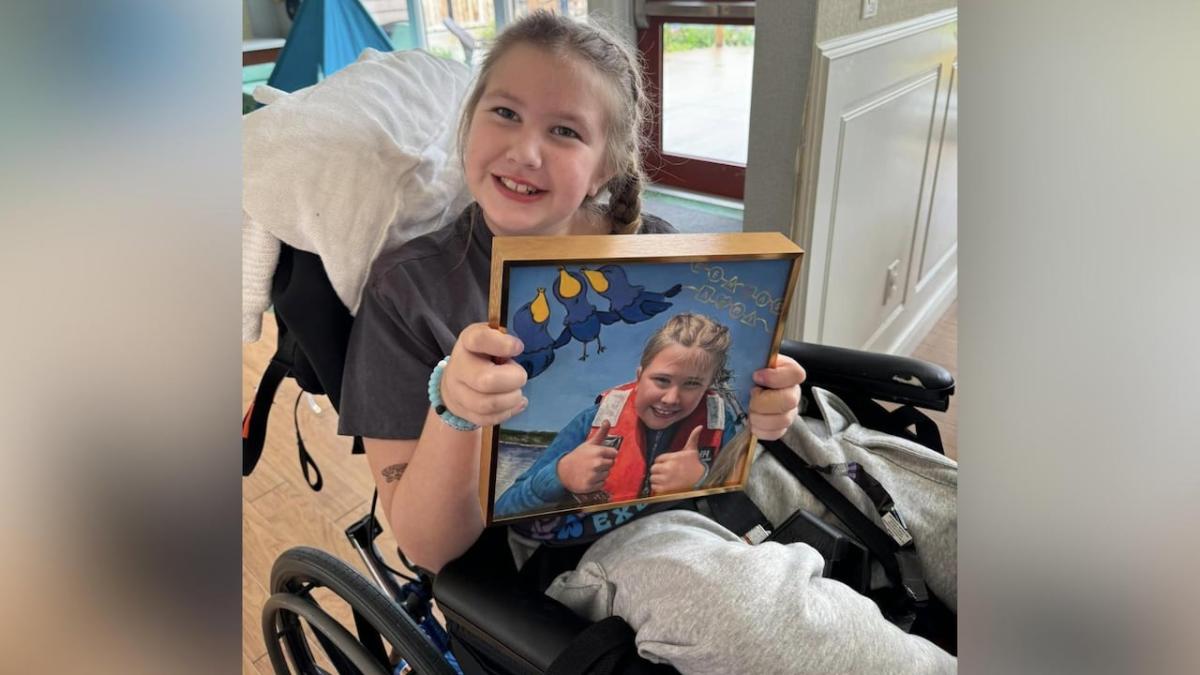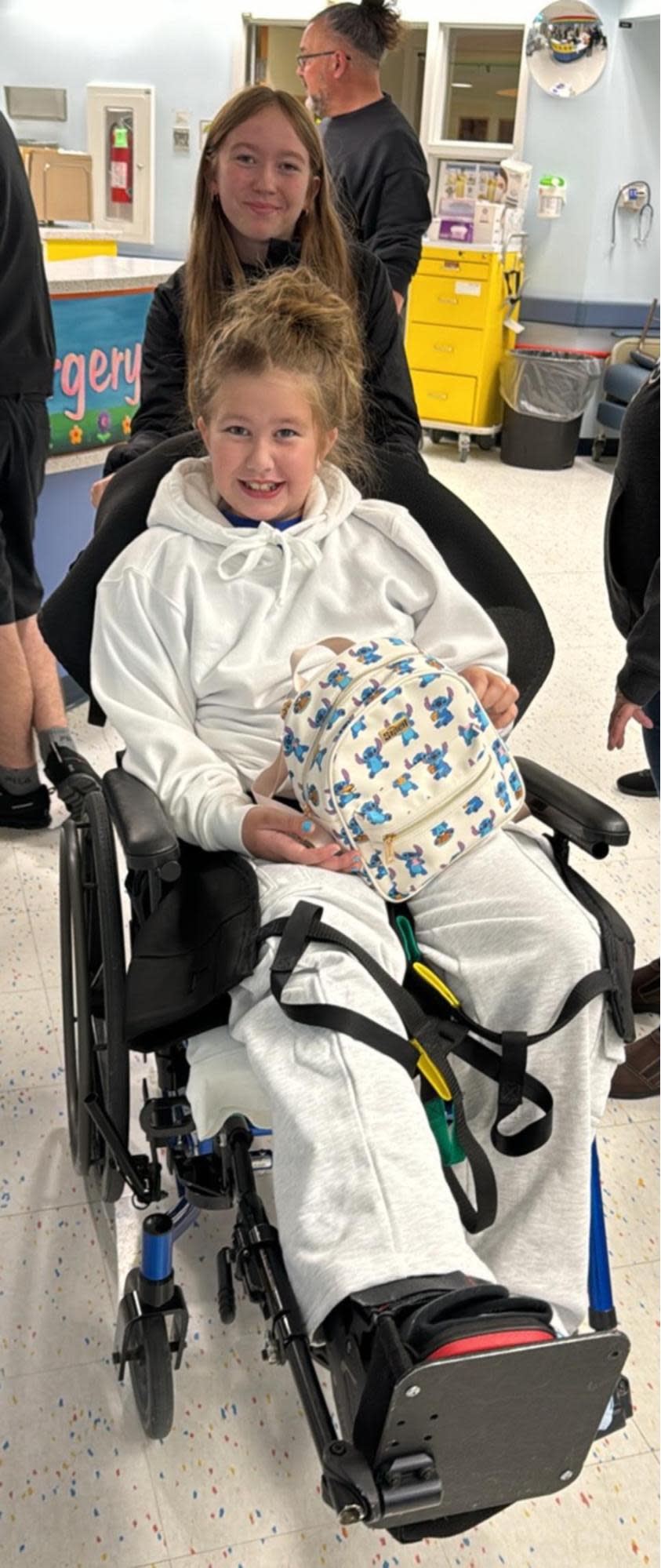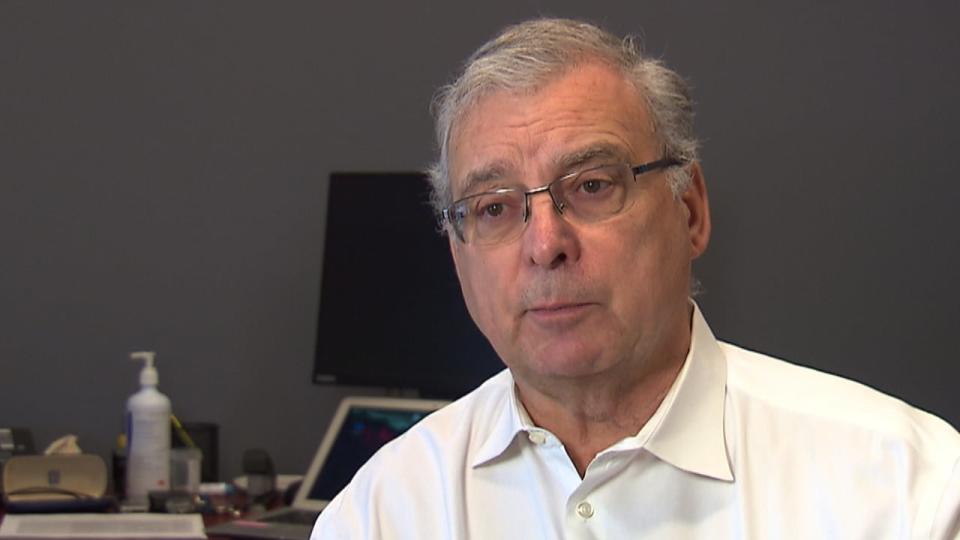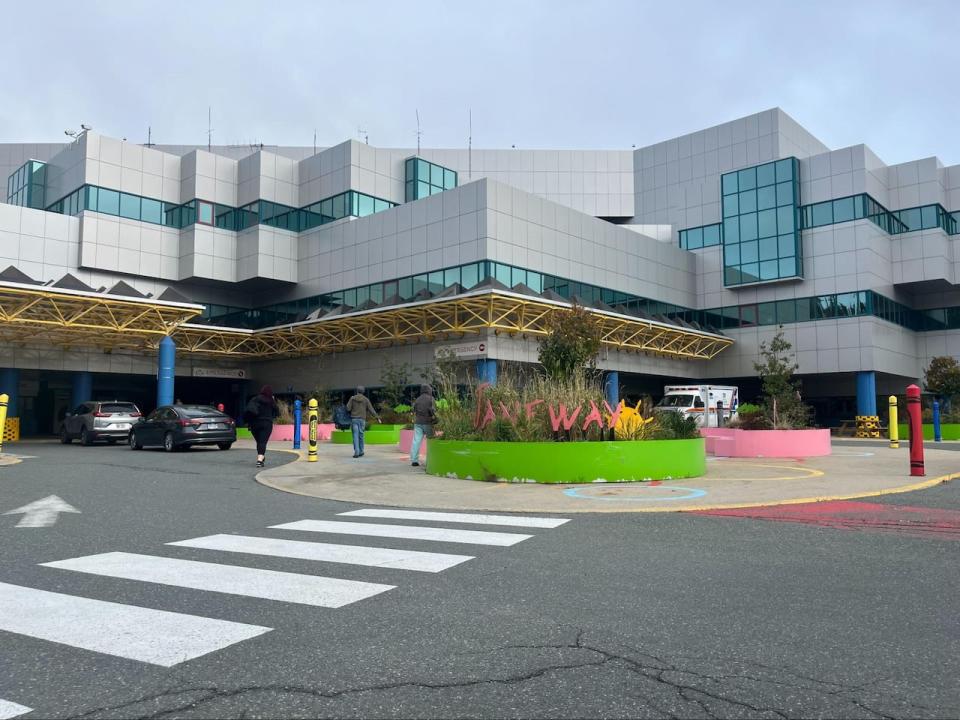


A family from Quebec’s Lower North Shore believes the province is jeopardizing their 10-year-old daughter’s recovery from a traumatic brain injury and violating her right to be served in English during rehabilitation.
McKenna Jones Griffin was in an off-road vehicle accident in mid-August near Blanc Sablon, Que. Her injuries were so severe, her survival depended on being transferred to a larger medical centre. But Quebec’s medevac service was not available.
“It was crucial that she get out quickly,” said McKenna’s mom, Dena-Marie Jones Maurice.
A search-and-rescue helicopter from Newfoundland picked up McKenna and took her to the Janeway Children’s Health and Rehabilitation Centre in St. John’s. The first 72 hours were touch and go, but McKenna made it through and is ready to be transferred back to a hospital in Quebec to start her rehabilitation.
McKenna can speak and say how she feels, but her mother says the way she expresses herself is a bit more childish than before.
“She’s so ready and excited to begin this next step,” said Jones Maurice.

McKenna is seen here with her sister, Miley. Her parents said their daughter’s progress depends on her receiving rehabilitation in English. They are not convinced she will receive that in Quebec City. (Submitted by Dena-Marie Jones Maurice and Shaun Griffin)
McKenna and her parents only speak English. To maximize McKenna’s chances at a full recovery, her neurosurgeon told the family that the Montreal Children’s Hospital is best equipped to support her. They were told there’s a bed available and a pediatric neurosurgeon who can oversee her progress.
But the province says in discussions with EVAQ — Quebec’s aeromedical evacuation program — it determined that a transfer to the CHU de Québec’s Centre mère-enfant Soleil was “in keeping with the patient’s needs” and service corridors.
Quebec’s Health Ministry says the hospital assured them the patient could receive English services as requested.
In an email, Marie-Christine Patry, a spokesperson for the Health Ministry said, “Bilingual personnel are assigned according to patient needs to guarantee care in the language of their choosing.”
The ministry did not provide further details of how this would be implemented for McKenna’s case.
“That’s not acceptable,” said McKenna’s father, Shaun Griffin.
They are concerned the staff in Quebec City may not be able to communicate comfortably in English and believe their daughter’s right to receive medical care in her own language is being violated.
McKenna’s doctors have told the family to continue fighting for her to get care in Montreal.
“We’re not giving up,” said Griffin.
Retired neurosurgeon says request is ‘legitimate’
The family was told a translator would be made available if there are any issues. But McKenna’s parents say her recovery depends on having therapists who are strong in English.
“It’s legitimate to want to have this,” said Dr. Georges L’Espérance, a retired neurosurgeon who has worked in a Montreal traumatology centre.
While he is not familiar with McKenna’s medical case, he says it seems to be “essential” that the 10-year-old be in a setting where she can freely ask questions and get answers in the only language she speaks.
L’Espérance says receiving services in a patient’s first language is less important during the first few weeks of treatment after a traumatic brain injury. But as patients start therapy — especially intensive programs which could go on for months — he says language and communication will become much more relevant.


Dr. Georges L’Espérance is a retired neurosurgeon. While he is not familiar with McKenna’s case, he says communication is neccesary as patients pariticpate in intensive rehabilitation programs. (Radio-Canada)
“There is a need to converse … to have exchange with the treating physiotherapist, psychotherapist and all that,” said L’Espérance.
He says rehab centres in Montreal will no doubt be able to provide English services.
While Quebec City centres offer the same high standards of care, he says bilingualism is not guaranteed among staff.
Language ‘a big part of the recovery’
Language is a fundamental element of recovery, says Dr. Angela Genge, neurologist and director of the ALS centre of excellence at the Montreal Neurological Institute.
“The concept of rehabilitation is to be able to communicate in a person’s primary language, if that’s available,” said Genge.
“You’re able to provide better care if you’re working in the patient’s primary language. It certainly directly affects recovery from a brain tumour or brain injury because language is a big part of the recovery that’s required.”
While she is not familiar with McKenna’s case, for other injuries, Genge says rehab might include speech therapy, physiotherapy or occupational therapy. She says the key is to recover the function that was lost.
Family is at a ‘standstill’
Griffin says he was told by the neurosurgeon that his daughter’s brain needs to be “rewired.”
“There can be no confusion. This needs to be 100 per cent English-speaking therapy,” said Griffin.
McKenna’s parents remain worried she will not get the care she needs in Quebec City and are concerned this situation is starting to stress the 10-year-old, who is noticing she isn’t walking and talking like she did before.
“She’s not the same girl she was two months ago,” said Griffin. “She’s getting very, very upset and frustrated over this.”


McKenna has been recovering from her injuries at the Janeway Children’s Health and Rehabilitation Centre in St. John’s, N.L., since August. She is waiting to be transferred to a hospital in Quebec to start her rehabilitation. (Kyle Mooney/CBC)
McKenna was cleared by her doctor in Newfoundland to travel, but the bureaucracy of where she will be sent next has delayed her transfer. McKenna’s parents said the medical team told them that each day she is missing therapy will set her back.
“We’re kind of at a standstill,” said Jones Maurice, who can’t understand why the province won’t fly their daughter to Montreal, considering it would be an extra 45 minutes away.
The Montreal Children’s Hospital would not address McKenna’s case specifically, but told CBC News in an email that it is ready and has the capacity to welcome any patient in need of tertiary care.